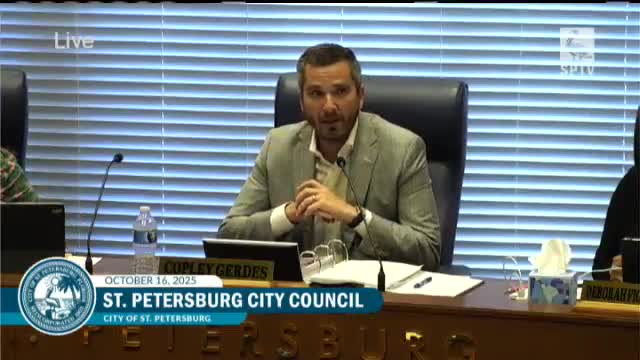Task Force Dagger outlines veteran services, rehabilitation programs to council
Get AI-powered insights, summaries, and transcripts
Subscribe
Summary
Task Force Dagger Chairman Mark (last name given as Stevens in remarks) presented the nonprofit’s work supporting special operations veterans and families, describing immediate needs, a health pipeline, rehabilitative adaptive events and community partnerships; council members praised the group's services.
Task Force Dagger presented an overview of services it provides to special operations veterans and their families at the Oct. 16 city council meeting, emphasizing a mix of immediate financial assistance, health‑care navigation and rehabilitative, adaptive programs.
Mark (presenter) described the organization’s three primary focus areas: one‑time emergency support for families with unanticipated expenses, a health‑care initiative addressing long‑term conditions such as traumatic brain injury and PTSD, and adaptive rehabilitative events that promote family resilience. He highlighted a signature program called Dagger Dive, which uses diving and family-based activities to rebuild communication and purpose.
Why it matters: The organization said it fills gaps not covered by government or insurance programs, facilitating medical care, counseling and mission-driven activities (including collaboration with the Department of Defense POW/MIA Accounting Agency for recovery missions). Mark said Task Force Dagger manages a pipeline of medical referrals and partners with academic and medical institutions to document outcomes that can influence larger health-care coverage decisions.
Council response: Council members thanked the presenter for his military service and praised the nonprofit’s programs. Council Member Corey Givens and Vice Chair Hanowitz thanked Task Force Dagger for direct support to service members and families; the vice chair read the SOF (special operations forces) aphorism the presenter shared: “Humans are more important than hardware.” Council members urged colleagues to visit programs and consider broader recognition and support.
No formal action was taken by council; the presentation was informational and council members asked staff to coordinate potential outreach and community engagement opportunities.
